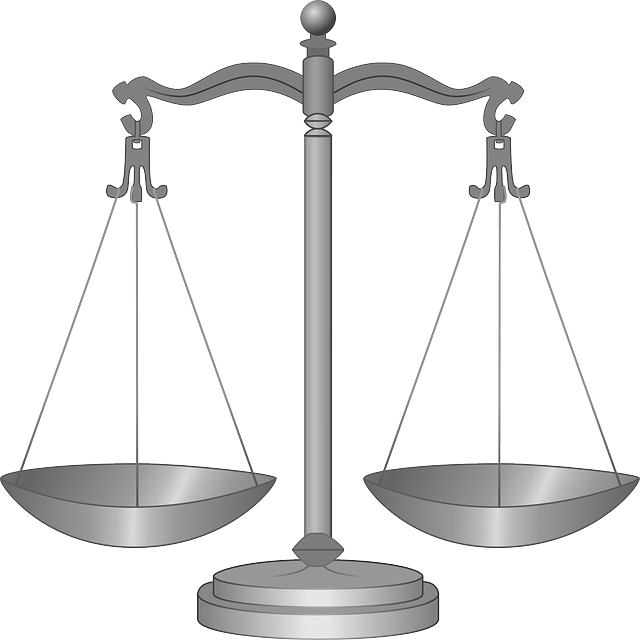Financial fraud, facilitated by the digital landscape, requires proactive measures including advanced analytics, robust monitoring systems, and understanding legal avenues like class-action lawsuits. Key steps involve identifying red flags, gathering evidence, and navigating the timeline for filing a claim using specialized legal expertise. Success hinges on understanding fraud elements, meticulous documentation, and transparent investigative processes to protect victims and maintain financial integrity.
Financial fraud is a global concern, with sophisticated schemes constantly evolving. This comprehensive guide delves into the intricate world of financial fraud detection, equipping individuals and organizations with essential knowledge. We explore various types, from identity theft to Ponzi schemes, and uncover common red flags that can signal fraudulent activities. Additionally, we discuss the pivotal role of technology in monitoring and preventing fraud, as well as legal strategies for filing a class-action lawsuit to reclaim losses, emphasizing the key elements needed to build a robust case.
- Understanding Financial Fraud: Types and Common Schemes
- Identifying Red Flags: Tools for Early Detection
- The Role of Technology in Advanced Fraud Monitoring
- Navigating Legal Paths: When to File a Class-Action Lawsuit
- Building a Strong Case: What You Need to Prove
Understanding Financial Fraud: Types and Common Schemes

Financial fraud is a complex and evolving crime that targets individuals, businesses, and even governments. Understanding the various types and common schemes is crucial for effective detection and prevention. Fraudsters employ sophisticated techniques to manipulate financial systems for personal gain, often leaving their victims with significant financial losses and legal complexities.
Some prevalent forms include identity theft, where criminals assume false personas to access sensitive information; investment scams, such as Ponzi schemes; and accounting fraud, which involves manipulatively altering financial records. With the digital age bringing new avenues for deception, recognizing these patterns is essential. Knowing how to identify red flags, like unusual transactions or inconsistent documentation, can help individuals and organizations protect themselves. Moreover, being aware of the legal options available, such as filing a class-action lawsuit claim (How to File Class Action Lawsuit Claim), can provide a powerful tool for those affected by financial fraud, ensuring justice and, potentially, compensation for his clients with an unprecedented track record in winning challenging defense verdicts.
Identifying Red Flags: Tools for Early Detection

Identifying red flags is a critical step in financial fraud detection. Advanced analytics and machine learning algorithms have become powerful tools to analyze large volumes of data and uncover suspicious patterns that might indicate fraudulent activities. These technologies can detect anomalies in transaction histories, unusual spending habits, or deviations from typical client behavior, enabling financial institutions to take proactive measures.
Early detection is crucial for minimizing potential losses and protecting clients. By implementing robust monitoring systems, institutions can flag transactions that warrant further investigation. This process often involves a combination of automated systems and manual reviews to ensure accuracy in identifying fraudulent schemes. Understanding these red flags is essential, especially when considering how to file a class action lawsuit claim against the perpetrators, as it provides a solid foundation for building a compelling case, particularly in coordination with a general criminal defense strategy aimed at avoiding indictment.
The Role of Technology in Advanced Fraud Monitoring

In today’s digital era, financial fraud has evolved into a complex and sophisticated game for perpetrators. To counter this, advanced fraud monitoring systems powered by cutting-edge technology are becoming indispensable tools for financial institutions and businesses worldwide. Machine learning algorithms play a pivotal role in detecting anomalies and patterns that may indicate fraudulent activities, enabling proactive measures to prevent potential losses. By continuously analyzing vast datasets, these technologies can identify red flags that might escape traditional monitoring methods, thus enhancing the overall security posture of organizations.
While technology offers powerful solutions, it’s important to remember that a successful fraud detection strategy also requires a comprehensive legal framework. For instance, when dealing with high-stakes cases and complex schemes, understanding how to file a class-action lawsuit claim can be crucial in holding perpetrators accountable. Jury trials in these matters often serve as a deterrent and a means of ensuring substantial compensation for victims. Avoiding indictment is not the goal; instead, a robust legal response to financial fraud contributes to maintaining integrity within the financial landscape.
Navigating Legal Paths: When to File a Class-Action Lawsuit

Navigating Legal Paths: When to File a Class-Action Lawsuit
When it comes to financial fraud, victims often seek justice through a powerful legal tool: the class-action lawsuit. This collective legal strategy allows numerous individuals affected by the same fraudulent scheme to band together and hold perpetrators accountable. The process begins with thorough investigation and identification of the defendant’s liabilities. It is crucial to gather concrete evidence, such as financial records, contracts, or communications, that demonstrate the fraud.
Determining when to file a class-action lawsuit claim involves assessing the severity and scale of the fraud. While general criminal defense strategies may apply in some cases, class-action lawsuits focus on civil remedies. These suits aim to compensate victims and prevent similar incidents in the future. White-collar and economic crimes, given their intricate nature, often require specialized legal expertise. Jury trials can be a pivotal step in these cases, offering a platform for presenting complex financial frauds to a group of peers for judgment.
Building a Strong Case: What You Need to Prove

Building a strong case for financial fraud detection involves gathering compelling evidence to prove wrongdoing. When considering a How to File Class Action Lawsuit Claim, understanding the elements required to establish fraud is crucial. This includes demonstrating intentional misrepresentation or omission, reliance on false information, and resulting damage or loss to individuals or entities.
Collecting detailed records, transaction logs, and expert testimonies can strengthen your case throughout all stages of the investigative and enforcement process. Ensuring transparency and meticulous documentation across the country can help in achieving a complete dismissal of all charges, ultimately protecting the rights of those affected by fraudulent activities.
Financial fraud is a complex and ever-evolving challenge, but with the right tools and understanding, it can be effectively detected and addressed. By recognizing common types and schemes, utilizing early detection red flags, and embracing advanced technology in monitoring, individuals and organizations can significantly reduce risks. Moreover, navigating legal paths to file a class-action lawsuit claim when appropriate provides a powerful tool for collective action against fraudulent practices. Ultimately, building a strong case requires gathering compelling evidence and proving key elements to secure justice and compensation for victims.






